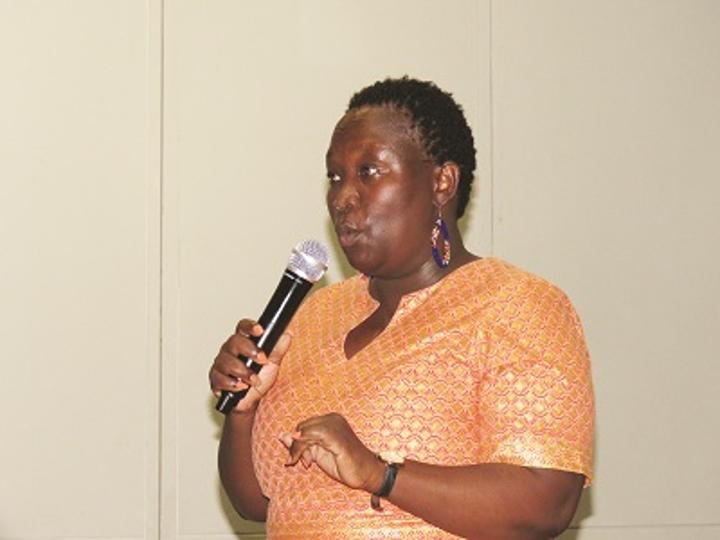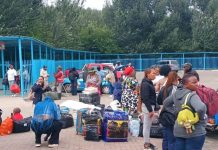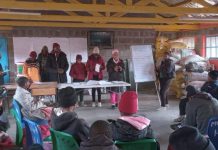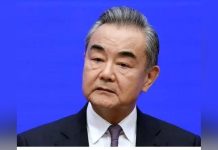Africa-Press – Lesotho. The International Organisation for Migration (IOM) had last week equipped the Labour Inspectors with tools of trade on how to identify human trafficking
cases and victim identification at their work. The IOM’s Project Manager ‘Mabaruti Motsamai said human trafficking and smuggling of people impact human mobility negatively.
As thus, IOM argues that human trafficking is a “global problem”. Motsamai said the organisation works in collaboration with the government to counter human
trafficking and smuggling. She also highlighted that IOM capacitates the Ministry of Home Affairs at the borders to enhance monitoring of movement of people.
The Principal Secretary (PS) in the Ministry of Labour and Employment Emmanuel Lesoma said the knowledge gained from the training will enhance the Ministry in its
endeavours to curb trafficking. He also touched on the violations of human rights such as forced labour and child labour. “This comes at an opportune time when the Ministry is engaged with the process of
drafting the labour law. ” The PS said Lesotho is positioned in the second tier as per the studies conducted, and therefore risk losing the African Growth and Opportunity Act (AGOA).
These developments follow the United States (US) stance that Lesotho ought to take serious measures to counter the human trafficking crime. “The government did
not investigate or prosecute any potential trafficking cases and did not convict any traffickers for the third consecutive year. Despite serious concerns of official complicity in trafficking crimes, the government did not
report any investigations, prosecutions, or convictions of government officials for such acts, which appeared to restrict all law enforcement actions during
the year. “The government identified fewer victims, and did not finalize standard operating procedures on victim identification or the national referral mechanism for the third
consecutive year. The government did not allocate funding for the Victims of Trafficking Trust Fund for the eighth consecutive year or fund the Child and
Gender Protection Unit (CGPU), responsible for handling trafficking cases within Lesotho law enforcement. The government did not train front-line responders, which often resulted in law enforcement re-traumatizing potential
victims. “The government did not address issues in its legal framework for human trafficking, which did not criminalize all forms of forced labour and sex trafficking and included
penalties that were not sufficiently stringent to deter the crime. Therefore Lesotho was downgraded to Tier 2 Watch List,” reads the 2019 Trafficking in Persons Report: Lesotho in pertinent part which
is produced by the United States Department of State. One of the attendants ‘Mamokhele Chere said the workshop could not have come at a right time adding that human trafficking cases are surging.
Chere said post the training they will be in a position to identify pointers during their inspections. The Mohale’s Hoek Labour Inspector further pointed out that they will be able to identify if
their clients are vulnerable to these crime acts especially the expatriates, saying they could also be victims of trafficking. Meanwhile, International Labour Organisation (ILO) says about 25 percent of children engaged into forced labour and sexual exploitation around the world.
For More News And Analysis About Lesotho Follow Africa-Press






